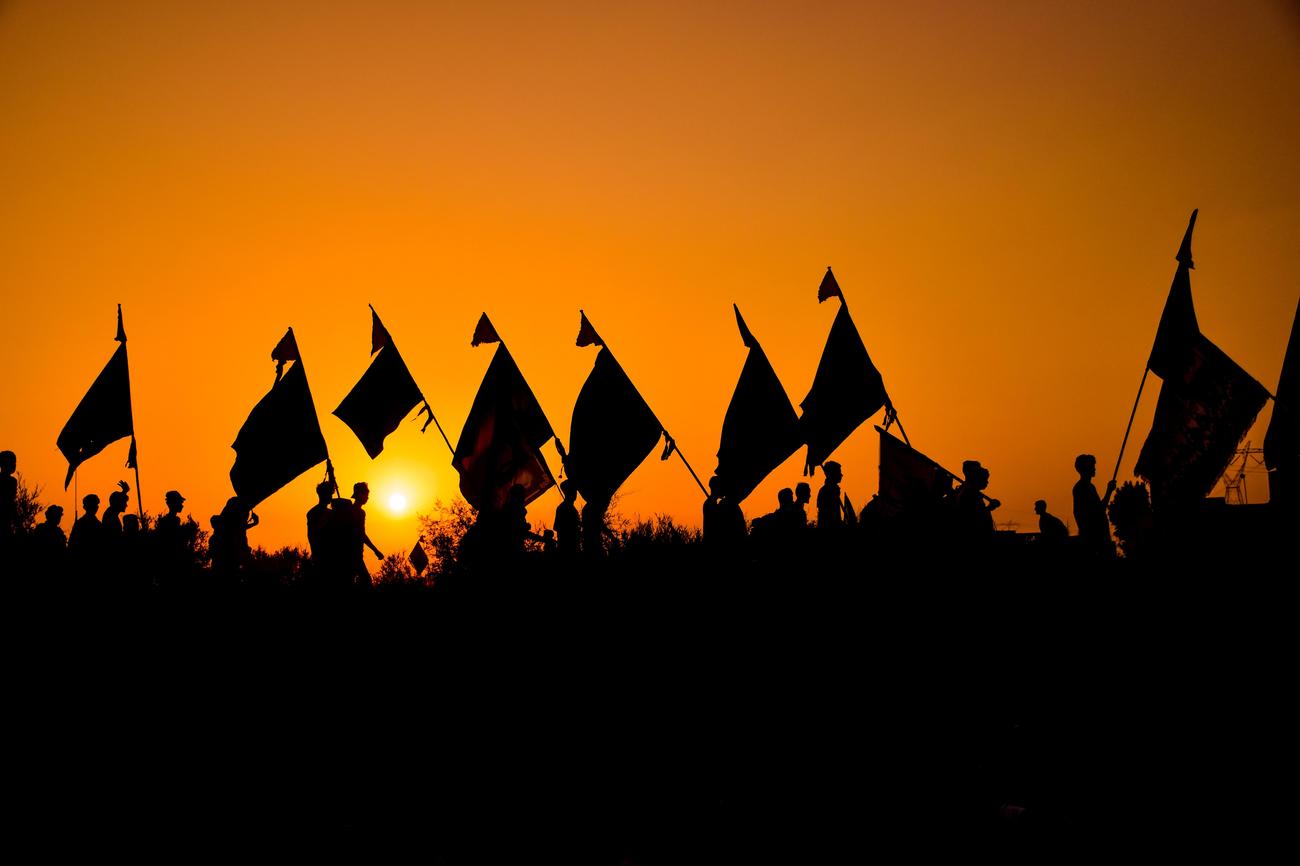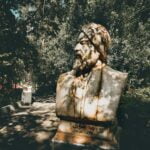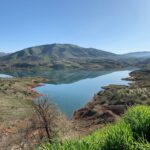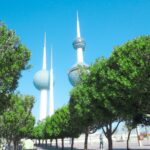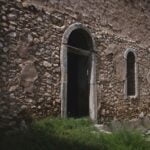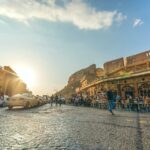Are you ready to embark on a journey of discovery and exploration? Brace yourself as we unlock the intriguing mysteries of Iraq, a land rich in history and culture. In this article, we delve deep into the heart of this mesmerizing country, presenting you with essential and captivating facts that every student should know. So, fasten your seatbelts and get ready to delve into the world of Iraq Facts For Students.
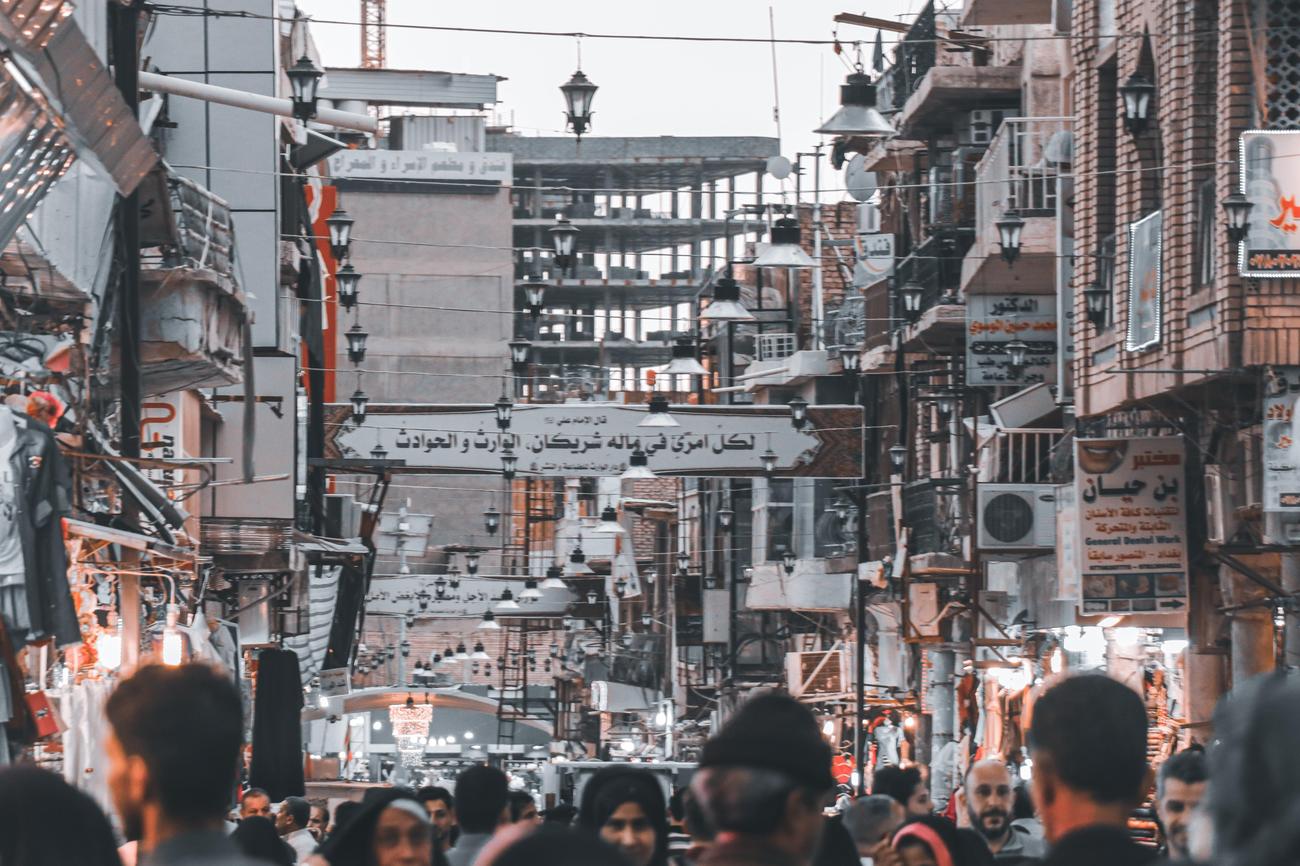
Iraq Facts For Students
Iraq, a country located in the Middle East and Asia, is a land with a rich history and diverse cultural heritage. Let’s unlock some essential facts about this fascinating nation.
1. Cradle of Civilization
Iraq is known as the cradle of civilization. Its ancient land, Mesopotamia, witnessed the birth of writing, mathematics, and the wheel. The contributions of the Sumerians, Babylonians, and Assyrians laid the foundation for modern society.
“The history of Iraq is deeply intertwined with the development of human civilization.”
2. Rivers and Marshlands
The Tigris and Euphrates rivers flow through Iraq, providing fertile land for agriculture. The lush riverbanks are adorned with willows, poplars, and licorice plants. In addition to the rivers, Iraq boasts picturesque marshlands filled with reeds and tall grasses.
3. Challenges in the Desert
While Iraq is blessed with abundant water sources, it also faces the harsh reality of deserts and dry plains. Plants struggle to grow in these arid regions, making it difficult for wildlife to thrive. Nevertheless, in the desert, life finds a way. Hyenas, pigs, jackals, foxes, and rabbits adapt to these harsh conditions.
4. Government and Leadership
In Iraq, the head of government is the Prime Minister, currently Mohammed Shia al-Sudani. The head of state is the President, presently Abdul Latif Rashid. Together, they guide the nation and make important decisions for its future.
5. Education and Learning
Education in Iraq is funded by the state, and primary education is compulsory. The government recognizes the value of education in shaping a brighter future for its citizens. Iraqi students have access to a range of subjects, allowing them to explore their interests and unlock their potential.
“In Iraq, education is seen as the key to progress and success.”
6. Troubles and Conflicts
Iraq has faced numerous challenges throughout its history, including the Iran-Iraq and Persian Gulf Wars. These conflicts have shaped the nation and its people. Despite the adversities, Iraqis have shown resilience and continue to strive for peace and stability.
7. Ancient Wonders and Cultural Vibrancy
Iraq is home to ancient wonders such as the Hanging Gardens of Babylon and the ruins of the city of Ur. Its cultural heritage can be seen in the intricate designs of its mosques, the vibrant colors of its traditional clothing, and the enchanting melodies of its music. Exploring the rich tapestry of Iraqi culture is a journey worth undertaking.
8. A Captivating Destination
Studying Iraq opens up a world of discovery. From its ancient history to its current socio-political landscape, students can gain a deep understanding of this captivating nation. By unlocking the secrets of Iraq, students can foster cross-cultural understanding and appreciate the complexity of our global community.
“Embarking on a journey to explore Iraq’s past and present is an opportunity to broaden your horizons and expand your knowledge.”
So, dear students, are you ready to uncover the fascinating facts about Iraq? Let’s embark on this enlightening journey together and unlock the beauty of a nation deeply rooted in history and culture.
Iraq is a country rich in history and cultural heritage. If you’re interested in learning some fascinating insights about this captivating nation, click here to discover some interesting facts about Iraq.
Iraq Facts For Students
Iraq, with its rich Middle East history and culture, offers a captivating blend of tradition and modernity. As you dive into the historical and geographical intricacies of Iraq, you’ll uncover a treasure trove of fascinating stories and landmarks. From the ancient ruins of Babylon to the bustling streets of Baghdad, this country has so much to offer. So, if you’re eager to explore the depths of Middle Eastern heritage, join us on a virtual journey by clicking here: Middle East history and culture. And for those seeking to unravel the historical and geographical intricacies of Iraq, we have just the link for you: historical and geographical intricacies of Iraq.
Remember, knowledge is the key to understanding the world around us, and by exploring the captivating history and culture of Iraq, you’ll gain a deeper appreciation for this remarkable country. So, don’t miss out on this opportunity to expand your horizons and embark on a journey like no other. Click the links above and let the adventure begin!
Introduction: Iraq, a Country of Contrasts
[youtube v=”YHQqsx9wsnc”]
When we hear the word “Iraq,” images of war and conflict often come to mind. However, Iraq has a rich and vibrant history that goes far beyond its recent troubles. In this article section, we will explore the geographical and cultural aspects of Iraq that often go unnoticed. From its location in the Middle East to its historic cities, diverse people groups, and natural resources, Iraq is a country of contrasts. Despite the challenges it faces, Iraq still holds on to its cultural heritage and strives to move forward.
Geopolitical Importance: The Blessing and Curse
Iraq’s location in the Middle East is a major factor in the country’s significance on the global stage. Bordered by six other countries and with a narrow coastal area on the Persian Gulf, Iraq’s location makes it a pivotal player in geopolitical strife. The country is divided into 19 provinces, with Baghdad as its capital. Baghdad, located in the heart of the historic Tigris River Valley, is the second-largest city in the Arab world after Cairo. With a population density of nearly 50,000 people per square kilometer, Baghdad is one of the most densely populated areas globally.
Iraq’s Unique Demographics
Iraq is home to a diverse range of people groups, each with their own distinct culture and heritage. The majority of the population, about 75%, is Arab, while Kurds make up around 15% of the population. The remaining population is composed of smaller groups, including Assyrians, Turkmen, Yazidis, and Shabak. It is interesting to note that Iraq has one of the largest Shia populations in the Middle East, with approximately 65% of the population identifying as Shia Muslims. Sunnis make up around a quarter of the population, and the rest consists of Christians and Yazidis.
The Autonomous Region of Iraqi Kurdistan
One distinct aspect of Iraq’s demographics is the autonomous region of Iraqi Kurdistan. This region, consisting of three provinces in the north – Erbil, Dohuk, and Sulaimania – is home to the majority of Kurds in Iraq. Iraqi Kurdistan has its own government, prime minister, and quasi-army, making it largely autonomous from the rest of the country. The Iraqi army has no access to this region, highlighting the unique status of the Kurds within Iraq.
Challenges and Controversies
While Iraq has a rich cultural heritage, it also faces various challenges and controversies. Some areas in Iraq, particularly in the west and central regions, are considered no-go zones due to ongoing conflicts involving ISIS and other extremist groups. International travel advisories strongly discourage visiting these red zones. However, it is worth noting that tensions and conflicts in Iraq are fluid, and the situation described in this transcript is applicable at the time of the video’s upload, which may differ from the current circumstances.
Exploring the Rich History and Natural Beauty
Iraq’s rich history stretches back to ancient civilizations and encompasses significant landmarks and archaeological sites. Some notable sites include the ancient cities of Eridu and Uruk, which are among the oldest cities in the world. Other important landmarks include the ruins of Babylon, Nineveh, and the shrines in Karbala, which hold deep religious significance for Shia Muslims. Additionally, Iraq’s natural beauty can be found in its rivers, namely the Tigris and Euphrates, which converge into the Shatt al-Arab river in the south. These rivers support vital agricultural activities, allowing the growth of crops such as rice, lentils, and dates.
Iraq’s Complex Relationship with Oil
Oil and petroleum form a significant part of Iraq’s economy, with the country possessing the third largest oil reserves in the Middle East. While this resource has the potential to bring wealth to the nation, Iraq’s history has shown a more complex relationship with its oil wealth. Historical events, including wars, sanctions, and political shifts, have impacted Iraq’s oil sector. Understanding this history is crucial to comprehending the country’s current challenges and aspirations.
The Road to Recovery
Iraq’s recent history has been marred by conflict and challenges, but the country remains resilient. Its people strive to maintain their vibrant culture and heritage amidst chaos and strife. Despite the ongoing difficulties, major metropolitan areas like Baghdad, Basra, and Erbil continue to function relatively normally, with access to essential services such as healthcare and education. While Iraq’s journey remains uncertain, there is hope for a brighter future where Iraq can reclaim its past glory and build a prosperous nation.
Conclusion: A Beautifully Historic Nation
As we conclude our exploration of Iraq, it becomes evident that Iraq’s beauty lies in its historical significance and cultural complexity. From its ancient civilizations to its diverse people groups, Iraq is a nation that has contributed immensely to human history. The challenges it faces should not overshadow its cultural heritage and the resilient spirit of its people. As the world observes and hopes for resolution in Iraq, it is essential to listen to and learn from those directly affected by ongoing events. Only through understanding and empathy can we truly appreciate the complexities of this historically significant country.
FAQ
What is the capital city of Iraq?
The capital city of Iraq is Baghdad.
What does the name Iraq mean?
The name Iraq means “deeply rooted, well watered; fertile” in Arabic.
What is the significance of Mesopotamia in Iraq’s history?
Mesopotamia, the ancient land of Iraq, is known as the cradle of civilization, where significant contributions to art, literature, and science were made.
How are education and primary education funded in Iraq?
Education in Iraq is funded by the state, and primary education is compulsory.
What conflicts has Iraq faced in recent history?
Iraq has faced ongoing troubles and conflicts, including the Iran-Iraq and Persian Gulf Wars.
